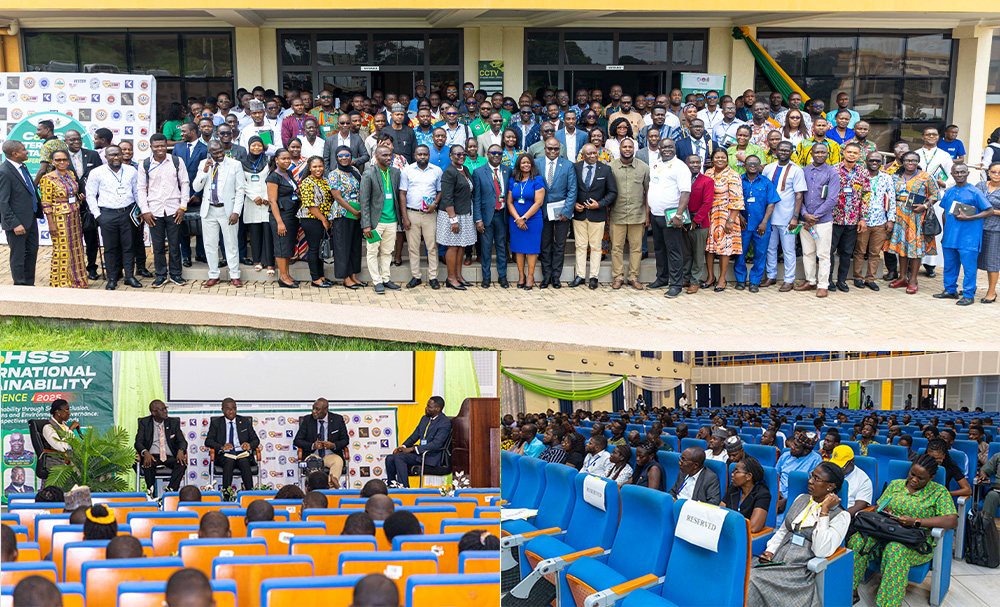The Vice-Chancellor of the Kwame Nkrumah University of Science and Technology (KNUST), Professor (Mrs.) Rita Akosua Dickson, has reaffirmed the university’s commitment to driving sustainable development through research, innovation and inclusive community engagement.
In remarks delivered on her behalf by the Pro Vice-Chancellor, Professor David Asamoah, she said sustainability must be understood as a developmental imperative requiring interdisciplinary collaboration and solutions rooted in African contexts.
“Our mission calls us to ensure that our research, teaching and outreach empower communities, inspire responsible business practices and advance equitable stewardship of natural and social environments,” she said.
She added that KNUST’s core values: leadership in innovation and technology, a culture of excellence, integrity and stewardship, and diversity and equal opportunity, form the foundation of the university’s sustainability agenda.
The Vice-Chancellor made the remarks at the maiden College of Humanities and Social Sciences (CoHSS) International Sustainability Conference, held on the theme “Sustainability through Social Inclusion, Business Innovations and Global Trends.” The gathering brought together scholars, policymakers, industry actors, development practitioners and students from across Africa and beyond.
The Chief Executive Officer of UG Consult and Country Leader for Enactus Ghana, Evans Koney, called for African-driven sustainability models that move the continent beyond dependency frameworks.
“We must transition from aid dependency to innovation dependency,” he said, urging governments, academia and the private sector to build inclusive innovation ecosystems that integrate youth, women and marginalized groups into development strategies.
He advocated for university-based green entrepreneurship incubators and increased investment in renewable energy, waste transformation and sustainable agriculture.
He also commended KNUST for demonstrating how universities can translate sustainability research into practical impact through applied research and industry partnerships.
Provost of CoHSS, Professor Charles Ofosu Marfo, said the conference provides a platform to confront the region’s sustainability challenges, ranging from environmental degradation and climate change to inequality and youth unemployment through interdisciplinary dialogue and evidence-based solutions.
Conference Steering Committee Chair, Professor Osei Wusu Adjei, said the event serves as a call to collective action.
“The urgency of sustainable, inclusive and innovative solutions cannot be overstated,” he said.

















